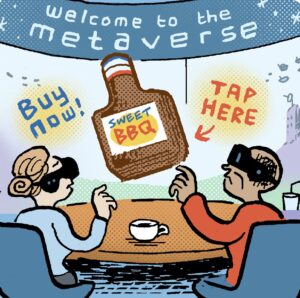Here’s today’s AdExchanger.com news round-up… Want it by email? Sign up here.
The Guinea Pig Farm
Google rushed generative AI search responses before the product was ready for primetime. In a recent blog post, Google announced a series of hasty updates after the rollout resulted in some glaring errors. (Would you like some glue in your pizza, anyone?)
But here’s a more relevant question: Was Google too hasty with its initial release?
“A consumer shouldn’t necessarily be the guinea pig with a lot of this,” one anonymous ad exec tells Campaign. Other sources bemoaned the fact that Google wants to own all the eyeballs rather than be a conduit of traffic to other sites.
But back to the point at hand: People are fed up in general with lowered standards for hardware and software releases across the board.
Marques Brownlee, a product reviewer on YouTube, created a stir recently with a particularly negative review of a vehicle from EV car maker Fisker, which is now in bad financial trouble. In response, he recorded a video elaborating on how companies nowadays release half-baked (but full-priced) products with the intent to iterate and update over time. But the products often aren’t ready for a dress rehearsal, let alone the premiere.
Google is pushing AI into products across its portfolio, including Performance Max, which has AI-controlled media buying and AI-generated creative. These products will, no doubt, experience pitfalls and problems along the way. Guess in that case, it’ll be advertisers, not web consumers, who are the “guinea pigs.”
‘How This Is Done’
The powers that be in advertising are struggling with the unapologetic tactics of new industry watchdogs: namely, Adalytics and Check My Ads.
Adalytics is a SaaS analytics vendor used by brands and agencies to audit programmatic buys. It also has a knack for publishing explosive news reports. It hit Google with three body blows last year, though publishers and other ad tech companies have also been the subject of uncomfortable scrutiny.
Neither Adalytics nor Check My Ads follow the tacit rules of Ad Land diplomacy. They don’t share reports in advance or fact-check with subjects ahead of time. They don’t arrange calls to appease and explain.
“It’s just not how this is done,” says one industry trade org leader, speaking to Ad Age, anonymously, of course.
The problem is, with the way things are historically done, nothing gets done. Execs fear publicly calling out bad practices because anything that could be construed as a claim of fraud – murky territory in ad tech – might spur a lawsuit.
Colossus SSP, for example, which Adalytics recently documented misdeclaring cookie IDs to DSPs, is suing Adalytics over its report.
But the fear of getting sued isn’t the only reason programmatic vendors don’t name and shame one another, even when they possess evidence of malpractice. For better or worse, ad tech is a club, and its members circle the wagons.
Should they, though?
Weaving The New Net
Netflix’s earnings and market cap are way up since it made the shift to adopt advertising and announced more flexible pricing tiers.
So investors now assume Netflix will plough right ahead into other areas that would make it more like other traditional studio entertainment companies. Which is to say, get into live events and sports.
“When you have the eyeballs, you control the pricing, and just think of the pricing power Netflix can exert for ads around sports and anything else people will want to watch as it happens,” Eric Clark, portfolio manager at Accuvest Global Advisors, tells Bloomberg.
However, Netflix’s early forays into those categories have not yet proven that hypothesis. Netflix has broadcast rights for Christmas Day NFL games this year, and reportedly advertisers are unpersuaded by its attempts to sell a 30-second spot for $400,000.
Netflix also originally announced a staggering $65 CPM for its inventory. That came down to $55 rather quickly – and a soft $55 at best.
In other words, sports isn’t an automatic win for Netflix.
But Wait, There’s More!
Costco is building an advertising business using its shopper data. [Marketing Brew]
WTF is the authenticated web? [Digiday]
A Whac-A-Mole approach to Big Tech won’t do, says Europe’s antitrust chief. [The Economist]
Adobe’s terms of service update has Creative Cloud customers worried content will be scraped to train AI. [Android Authority]













